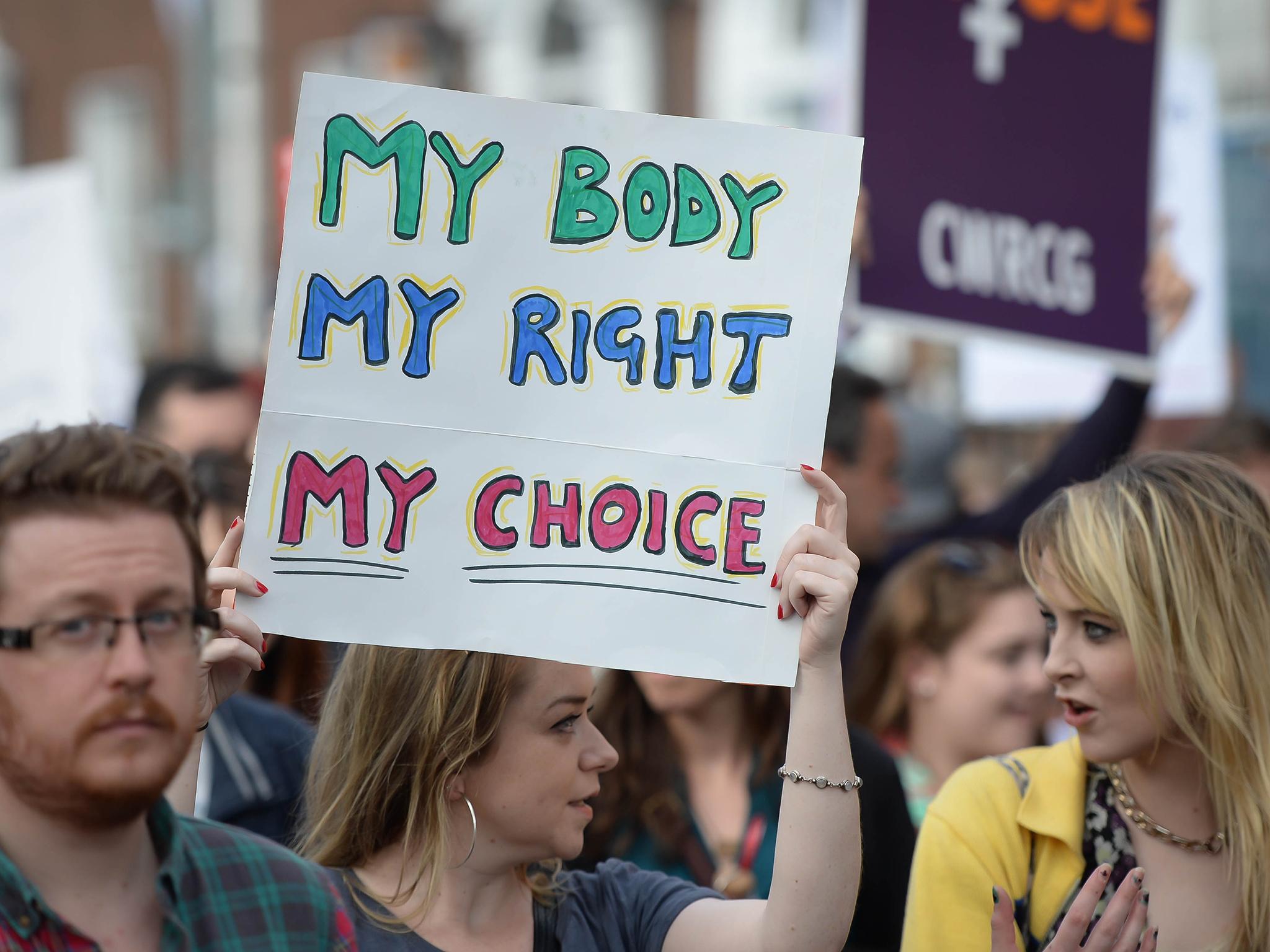US statehouses proposed 400 bills to restrict abortion access this year, study shows
Abortion rights advocates call to bolster legal challenges against conservative majority states

Your support helps us to tell the story
From reproductive rights to climate change to Big Tech, The Independent is on the ground when the story is developing. Whether it's investigating the financials of Elon Musk's pro-Trump PAC or producing our latest documentary, 'The A Word', which shines a light on the American women fighting for reproductive rights, we know how important it is to parse out the facts from the messaging.
At such a critical moment in US history, we need reporters on the ground. Your donation allows us to keep sending journalists to speak to both sides of the story.
The Independent is trusted by Americans across the entire political spectrum. And unlike many other quality news outlets, we choose not to lock Americans out of our reporting and analysis with paywalls. We believe quality journalism should be available to everyone, paid for by those who can afford it.
Your support makes all the difference.State lawmakers across the United States introduced almost 400 bills to restrict women’s access to abortion in 2015, a recent report says.
Of those bills, 47 became state law, according to Center for Reproductive Rights (CRR), an organisation that advocates for access to abortion said in a report (PDF) entitled 2015 State of the States: Fighting Back by Pushing Forward.
“It seems painfully clear that lawmakers in 2015 still haven’t gotten the message from the courts and their constituents: stop playing politics with women’s health and focus on priorities that support our families and communities,” CRR president Nancy Northup said in a press release on the report published earlier this month.
“Not content with trotting out the same old restrictions on safe and legal abortion, politicians in this legislative session introduced new and increasingly troubling ways to come between women and their trusted health care providers.”
In late 2011, Republican-dominated state legislatures began to impose restrictions on access to abortion that include 72-hour waiting period, during which time a woman is required to receive educational materials that abortion rights advocates say are not medically accurate. Other restrictions include measures that require abortion clinics to have hospital-level facilities, which effectively closed a slew of clinics. Following the closures, women in states like Missouri now travel an average of 120 miles for abortions, according pro-abortion rights Missouri State Representative Stacey Newman has told The Independent.
In 2015, “ many of these measures were Targeted Regulations of Abortion Providers (Trap) laws, politically motivated restrictions that do not apply to any other similar health care, interfere with patient’s personal decision-making, and ultimately block access to abortion care,” the report said.
In states like Idaho and Montana, lawmakers passed bills barring women from using telehealth services to obtain abortion medications, which the CRR report says affects “rural and low-income individuals.” Other states like North Carolina, following a precedent from other conservative-majority states, enforced a 72-hour waiting period on abortions.
The Independent has found that several other state legislatures attempted to pass bans on what lawmakers called “sex-selective” abortions.
In May, Louisiana state Representative Lenar Whitney pushed for a bill to ban sex-selective abortions. The National Asian Pacific American Women, an advocacy group, then told Al Jazeera that the bill would promote stereotypes of Asian Pacific American women, and would send a chill affect through the medical community that would make doctors think twice before performing abortions on women with cultural backgrounds that traditionally prefer sons to daughters.
CRR hopes to bolster its ongoing push against the legislative action to restrict abortion rights.
“We call upon those politicians fixated on cutting of safe and legal abortion access to give up this crusade to block women from vital health care and fulfill their responsibility to respect and protect the constitutional rights of all women, regardless of their zip code,” Ms Northup said.
For a number of the bills, court challenges by abortion rights advocates resulted in the measures being thrown out. In one recent example, a federal court blocked a Wisconsin law that would force abortion clinics to obtain admitting privileges at local hospitals. The state challenged the decision, but the appeal was overthrown in November.
Join our commenting forum
Join thought-provoking conversations, follow other Independent readers and see their replies
Comments